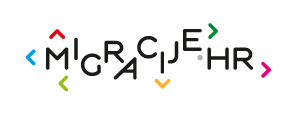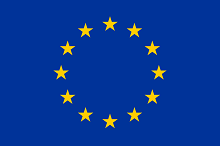Child allowance is a cash provision used by a parent or another person defined in the Child Allowance Act (Official Gazette nos. 94/01, 138/06, 107/07, 37/08, 61/11, 112/12, 82/15, 58/18 and 156/23) as the support in upbringing and care of children.
The Croatian Pension Insurance Institute handles the right to child allowance, while the Central State Office for Demography and Youth oversees the implementation of the Act.
As of 1 January 2024, all regional services, i.e., regional offices of the Croatian Pension Insurance Institute (HZMO) carry out procedures for deciding on the right to child allowance by applying European Union regulations on the coordination of social security systems and international agreements on social insurance.
As of 1 January 2024, applications for child allowance that are resolved by applying EU regulations, for parties who have a place of residence or a place of habitual stay in the territory of Sisak, shall be resolved by the Regional Office in Sisak. Consequently, the tasks of deciding on the right to child allowance by applying the European Union regulations on the coordination of social security systems in the first instance are carried out in all regional organisational units of the Croatian Pension Insurance Institute.
The right to child allowance is decided in the first instance by the regional organisational unit of the Institute. Digitization of the HZMO’s operations and the need for an even distribution of cases initiated by an application for child allowance between the HZMO regional services and regional offices facilitates an easier and faster resolution of user requests without residence criteria for determining local jurisdiction. The Institute may sign a contract with the Croatian Post to perform the tasks of receiving applications and documentation related to the decision on the right to child allowance.
The right to child allowance may be exercised by a parent, another person who, on the basis of a decision of the competent authority, exercises parental care, an adoptive parent, a guardian, a stepfather, a stepmother, a grandmother, a grandfather and a person who, on the basis of a decision of the competent authority for social welfare, is entrusted with the day-to-day custody of all children they support. The beneficiary of a child allowance may also be an adult child without either parent who is a full-time student.
Child allowance is payable for all children who are actually supported by the beneficiary, namely: for their biological children, adopted children, stepchildren or children of whom they have parental care on the basis of a decision of the competent authority, for dependent grandchildren in accordance with the regulation governing family relations, and for children whose day-to-day custody is entrusted to a guardian, foster family, or other persons.
The child allowance is granted up to the beneficiary’s 15th years of age, that is, up to the end of the school year in which the child turns 15 years of age. The child allowance is granted to the child in regular secondary education up to the end of that education and no longer than the end of the school year in which the child turns 19 years of age.
Exceptionally, the child allowance may be realised after that age for a child with a health disorder, up to the completion of the regular secondary education even after 19 years of age, but not longer than 21 years of age.
The entitlement to allowance for children who have not completed the school within the prescribed time period due to illness is prolonged, but not longer than up to 21 years of age.
Children with severe disability
With the entry into force of the Inclusive Allowance Act on 1 January 2024, the provisions of the Child Allowance Act relating to the exercise of the right to an allowance for children with health impairments or severe disabilities, in the pension insurance system ceased to apply. In other words, as of 1 January 2024, the HZMO will not initiate proceedings to obtain the findings and opinions of the Institute for expert evaluation, occupational rehabilitation, and employment of persons with disabilities (ZOSI) on the severity and type of the child’s disability. The proceedings for determining the right to child allowance initiated by 31 December 2023 and currently in progress will be completed in accordance with the provisions of the Child Allowance Act. The Croatian Institute for Social Work (HZSR) will take over the payment of a child allowance in the amount of EUR 110.36 to the beneficiaries of the right to the allowance for children with severe disabilities found on 31 December 2023, starting from 1 January 2024 until the last day of the month in which the HZSR will have issued a decision on their right to an inclusive allowance. The application of those beneficiaries for the continued exercise of the right to a child allowance after 1 March 2024 for children who had a severe disability, will be decided on according to the new income census, if the beneficiary submits a request for the continued exercise of the right to an allowance for those children.
In accordance with the Inclusive Allowance Act (OG 156/23), which entered into force on 1 January 2024, and in accordance with the Act Amending and Supplementing the Child Allowance Act (ZID ZDD), which entered into force on 1 March 2024, the regulations on social welfare and regulations governing family relations, i.e., the norms of the Child Allowance Act, have been harmonized. The right to an inclusive allowance for children with health impairments or severe disabilities is granted from 1 January 2024, and the deadline for deciding on the right to an inclusive allowance for those children is 31 December 2024.
From 1 January 2024, the Croatian Institute for Social Work (HZSR) is paying out the allowance for children with severe disabilities. The HZSR will pay this allowance until the last day of the month in which the decision on the recognition of the right to an inclusive allowance will have been issued.
From 1 January 2024 to 29 February 2024 the Croatian Pension Insurance Institute paid a supplement for children with health impairments, the amount of which was determined according to the income threshold with an increase of 25%.
At a beneficiary’s request, the Croatian Pension Insurance Institute decides on the right to a child allowance in accordance with the ZID ZDD act and conducts the procedure in accordance with national legislation and EU regulations.
On 1 March 2024, a new income census of 140% of the tax base entered into force, as well as five census groups.
The Child Allowance Act defines the following conditions for the acquirement of the right to child allowance:
- The applicant must have Croatian citizenship or the status of foreigner with approved permanent residence, and must reside in the Republic of Croatia for at least 3 years prior to submission of the application,
- The applicant must have the status of asylum holder under subsidiary protection or the status of a member of an asylum holder’s family in accordance with the rules on asylum, without conditions regarding the nationality and length of residence or permanent residence in the territory of the Republic of Croatia,
- The total income realized in the previous calendar year per household member does not exceed 140% of the budget base per month,
- The applicant must live in the same household with the child,
- The applicant supports the child.
The right to a child allowance may be realized if the average monthly income per household member in the previous calendar year does not exceed 140% of the budget base, i.e. if the average income per household member in the previous calendar year does not exceed 618,02 Eur per month.
Based on the average income per household member, we differentiate between five census groups on which the amount of child allowance depends.
Group 1 – in which the average monthly income per household member does not exceed 20% of the tax base (EUR 0 to 88.29), and in which the allowance is determined in the amount of 14% of the tax base, i.e., EUR 61.80 per child.
Group 2 – in which the average monthly income per household member does not exceed 40% of the tax base (EUR 88.30 to 176.58), and in which the allowance is determined in the amount of 12.5% of the tax base, i.e., EUR 55.18 per child.
Group 3 – in which the average monthly income per household member does not exceed 60% of the tax base (EUR 176.59 to 264.86), and in which the allowance is determined in the amount of 11% of the tax base, i.e., EUR 48.56 per child.
Group 4 – in which the average monthly income per household member does not exceed 100% of the tax base (EUR 264.87 to 441.44), and in which the allowance is determined in the amount of 9% of the tax base, i.e., EUR 39.73 per child.
Group 5 – in which the average monthly income per household member does not exceed 140% of the tax base (EUR 441.45 to 618.02), and in which the allowance is determined in the amount of 7% of the tax base, i.e., EUR 30.90 per child.
For a child without both parents, the amount of child allowance determined according to the established census is increased by 25% (EUR 77.25, EUR 68.97, EUR 60, EUR 70, EUR 49.66 or EUR 38.63). For a child without one parent, the amount of allowance determined according to the established census is increased by 15% (EUR 71.07, EUR 63.45, EUR 55.84, EUR 45.69 or EUR 35.54).
For beneficiaries exercising the right under Article 122 of the Act on Croatian Homeland War Veterans and Members of Their Families (for a child of a deceased or missing Croatian veteran), the amount of the child allowance is determined independently of the income threshold and amounts to EUR 77.25.
The beneficiary of the child allowance, in addition to the determined amount of the child allowance, is also entitled to an allowance in the amount of EUR 66,36 for the third and fourth child. This means that with a certain total amount of child allowance determined by the decision, EUR 66,36 is added to the beneficiary if he or she is entitled to allowance for three children, or EUR 132,72 per month if he or she is entitled to allowance for four or more children.
Relevant links:
- Croatian Pension Insurance Institute
- Ministry of Labour, Pension System, Family and Social Policy
- Child Allowance Act (Official Gazette no. 94/01, 138/06, 107/07, 37/08 – Decision of the Constitutional Court of the Republic of Croatia, 61/11, 112/12, 82/15, 58/18 and 156/23)
- Ministry of Demography and Immigration






